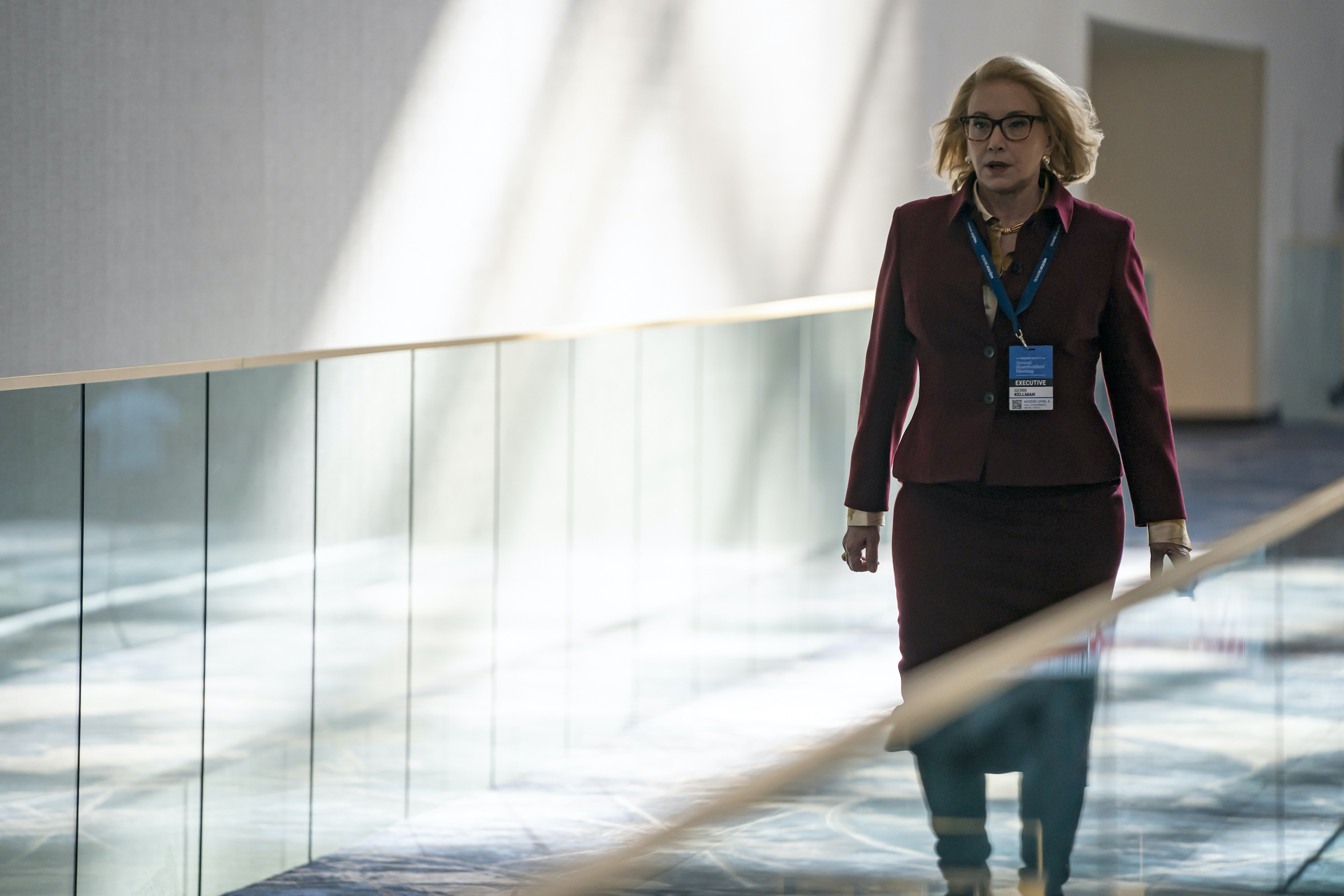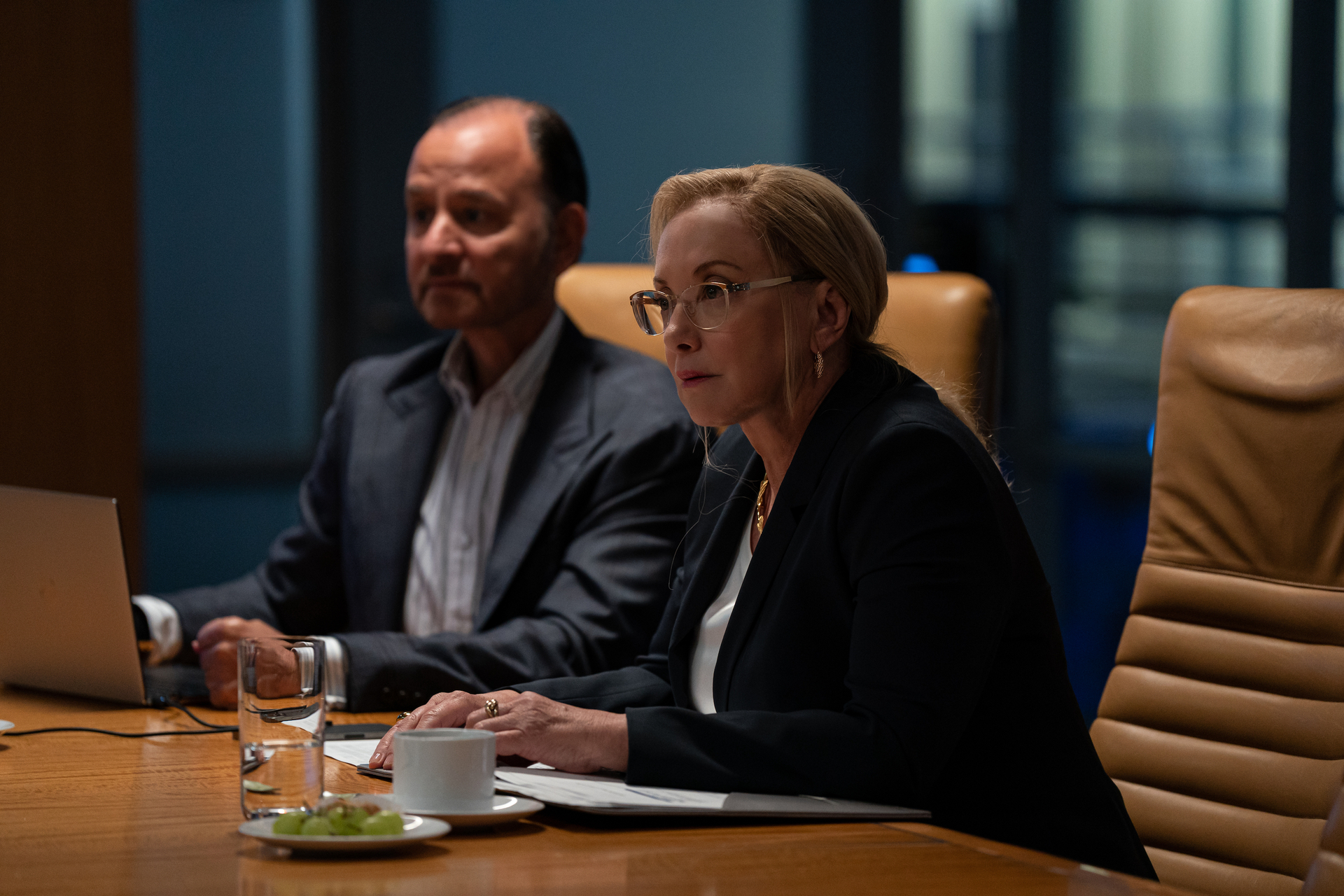Television may not be where most lawyers turn for legal education, but sometimes, it can be.
Amid the boardroom battles and backroom scheming of HBO’s Succession, the character Gerri Kellman — general counsel of media empire Waystar Royco — delivers one of the most compelling portrayals of in-house legal work in recent years.
Unlike the show’s headline-grabbing characters, Gerri operates in whispers and carefully chosen words. For general counsel and in-house attorneys, she offers a unique case study in navigating gray areas — a study that reveals how complex, high-stakes corporate law is navigated not just by rules but by relationships, judgment and discretion.
Why does this matter to general counsel? Because Gerri Kellman’s fictional world is a dramatized take on the very real ethical, strategic and professional dilemmas that in-house lawyers face daily. Whether it’s clarifying the identity of the client, advising beyond just legal compliance alone or avoiding conflicts of interest, Gerri provides a case study how the ABA Model Rules of Professional Conduct come alive in high-pressure corporate environments.
This article explores how her character’s decisions — both admirable and cautionary — can illuminate best practices for modern general counsel navigating today’s corporate minefields.

The Basics of Succession
The critically acclaimed series Succession, which ran for four seasons on HBO, follows the power struggles within Waystar Royco, a fictional global media conglomerate controlled by the domineering Logan Roy. The show centers on the Roy family — Logan and his four children — as both his children and outsiders jockey for influence, power and control over the empire. Behind the scenes, legal and ethical dilemmas emerge in almost every episode, making the show ripe for analysis by legal professionals.
Getting to Know Gerri Kellman
Played by J. Smith-Cameron, Gerri Kellman serves as Waystar Royco’s general counsel and one of the company’s longest-standing executives. She’s part consigliere and part fixer.
Throughout the series, Gerri demonstrates a keen understanding of corporate dynamics and an uncanny ability to read people and situations. Her loyalty to the company is never in question — even when her advice appears to shift in tone or direction depending on the political winds inside the company.
Gerri knows where all the metaphorical (and perhaps literal) bodies are buried. She is not just a legal advisor; she is a thoughtful strategist and, at times, a moral chameleon.
Example 1: Identity of the Client
One of Gerri’s most illustrative moments comes early in the first season. As Logan Roy begins making erratic decisions — such as announcing sudden drastic changes to the corporate leadership structure — his son Kendall begins plotting a potential overthrow. During a quiet rooftop conversation, Gerri informs Kendall that she has already gauged interest among board members, and there’s sufficient support to replace Logan. When Kendall presses Gerri for information, she calmly volunteers, “I love Logan. But my client is Waystar Royco.”

This moment is a textbook example of ABA Model Rule 1.13, which states that a lawyer employed by an organization represents the organization itself, not its officers, directors, shareholders or other constituents. Gerri’s clarity on this point shows her legal professionalism and knowledge. Her allegiance is to the corporate entity — even if it means acting against the founder and CEO.
Rule 1.13 also emphasizes the importance of making this distinction clear early in any professional relationship, and this lesson is important for the in-house context. For instance, in-house attorneys understand the importance of executives knowing (and understanding) that attorneys owe their duties to the organization — not the individual — especially when contentious or high-stakes issues arise.
Obviously, it’s important to ensure all parties understand these duties before an actual conflict arises. Waiting until conflicts emerge to make this distinction can lead to confusion, damaged relationships or even legal uncertainty.
Example 2: More Than Just Law
In a separate storyline, Logan sends his son Roman abroad to solicit funding from the son of a foreign dictator so the Roys can fight off a corporate takeover.
The deal is simple on its face: The dictator will invest millions in Waystar Royco but only on the condition that the company agrees to launch a propaganda channel favorable to his regime. Although Roman is somewhat enamored with the opportunity, Gerri quickly steps in, warning that the arrangement is an “ethical minefield.”
This is a clear example of ABA Model Rule 2.1 in action. Rule 2.1 explains that, in rendering advice, lawyers should not confine themselves to legal statutes and precedent alone. Instead, they should also consider “moral, economic, social and political factors that may be relevant to the client’s situation.” Gerri’s reaction signals that she’s not just thinking about the deal’s legality — she’s thinking about reputational risk, geopolitical consequences and broader ethical concerns and how they could impact Waystar Royco.
As in-house attorneys know, decisions are rarely made based on legal risk alone. A good in-house (or outside) counsel is not merely a legal encyclopedia. As the rules explain, an attorney can act as a strategic advisor, factoring in the long-term effects of decisions beyond what’s in governing case law or statutory authorities.
Gerri’s ability to quickly spot the moral hazard in the deal — and to communicate that concern succinctly — underscores how legal advice must be grounded in broader contextual awareness.

Example 3: Don’t Twist the Rules to Your Benefit
Later in the series, three of Logan’s adult children — Kendall, Roman and Siobhan “Shiv” Roy — once again plot to remove their father from power. They approach Gerri, hoping to secure her support by arguing that Logan is no longer mentally fit to lead the company. This request puts Gerri in a precarious position, both legally and politically.
Gerri gives a calculated response: “I’m focused on whatever outcome best serves the financial interests of the shareholders of the company.”
On the surface, this statement seems aligned with her role. It sounds like classic fiduciary thinking — and perhaps more importantly (at least from Gerri’s perspective), it would read perfectly in a deposition transcript.
However, anyone familiar with Gerri’s character knows she has already conducted a personal risk assessment before responding. She understands that her own position is safer with Logan in charge, and she has likely reverse engineered her ethical rationale to support that conclusion in order to make it seem as if she is solely thinking about the company’s best interest.
Here, Gerri walks a fine line. While her statement echoes corporate responsibility (see ABA Model Rule 1.13), it also reflects a subtle manipulation of her ethical reasoning for personal gain. Lawyers — especially those working within organizations — must be wary of allowing personal interests to color their professional judgment.
Although Gerri’s conduct might not rise to a technical violation, it serves as a cautionary tale. Legal ethics should not be weaponized to justify decisions that are primarily self-serving.
Conclusion: Learning from Gerri Kellman
Although Gerri Kellman is a fictional attorney, the challenges she faces mirror those encountered by real-life general counsel and in-house attorneys on a daily basis. Her character encapsulates the balancing act of being an in-house lawyer in a powerful, fast-moving corporate environment. She reminds us that lawyers must:
- Be clear about who their client is (and to whom they owe their duties);
- Consider ethical, social and political factors beyond the letter of the law; and
- Avoid letting personal loyalties or ambitions distort their professional responsibilities.
While Gerri does not always use her power for good, she demonstrates a clear understanding of the applicable ethical rules. Watching television characters like Gerri Kellman is more than entertainment — it’s an opportunity for “legal nerds” like those reading this far in the article to reflect and, at times, be reminded of pitfalls to avoid.
In the world of in-house legal counsel, the best general counsel doesn’t just know the rules well — they play by the rules with integrity.
Brent Turman is a business litigation partner in the Dallas office of Bell Nunnally & Martin LLP, where he leverages his background in film and television production to communicate compelling arguments to judges, juries, and arbitrators.
